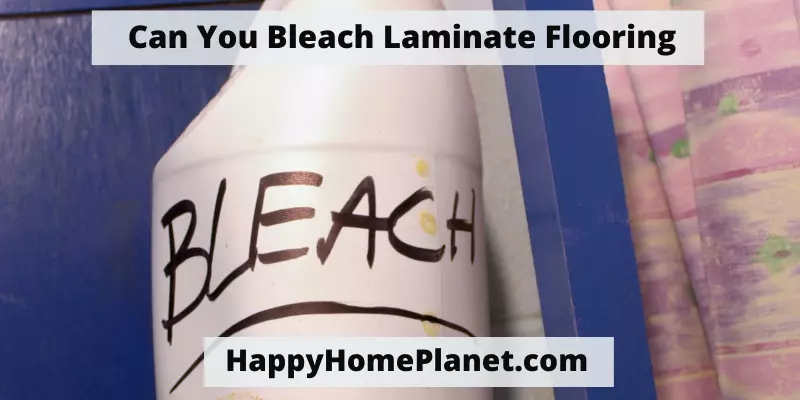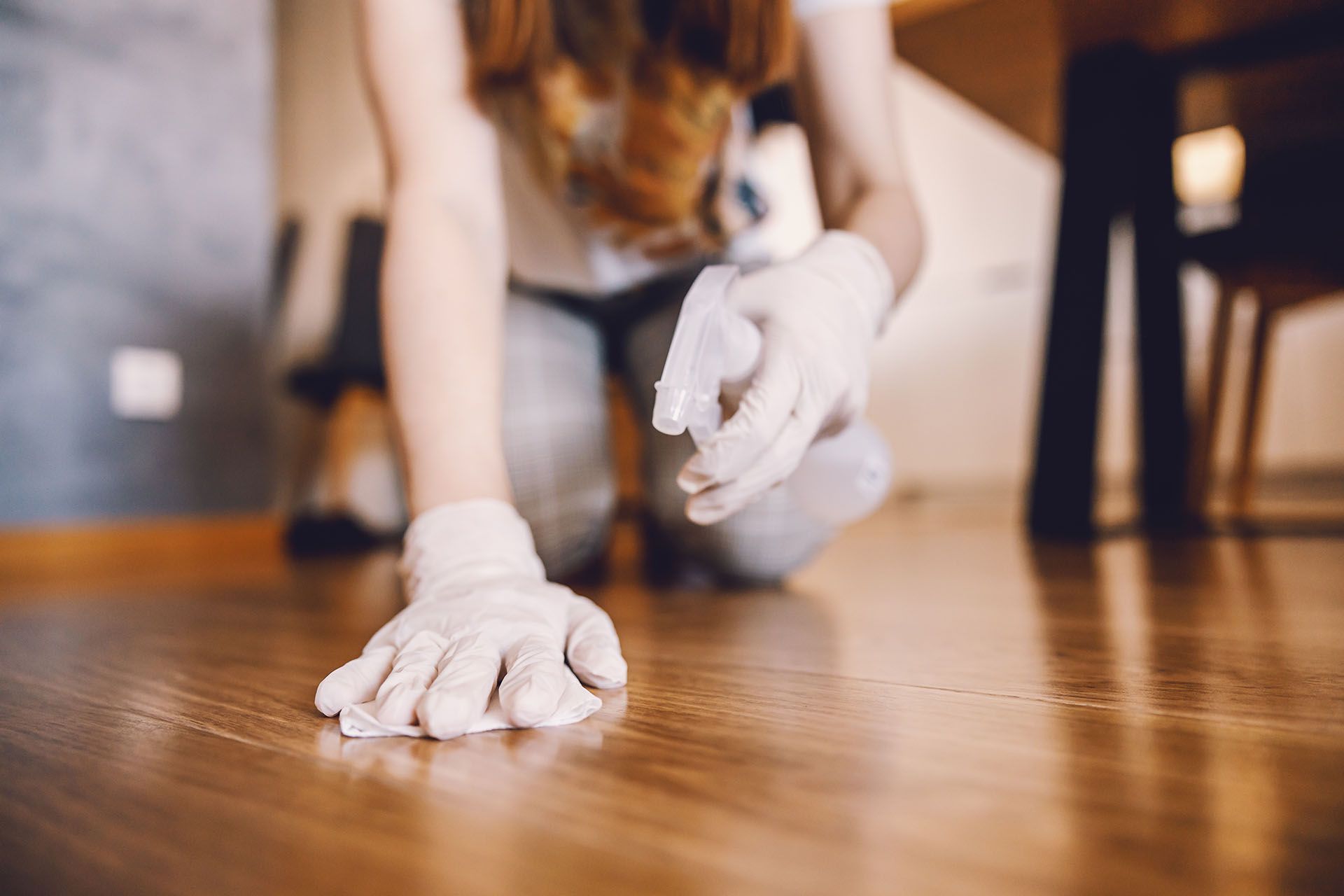Picture this: You’re cleaning your kitchen after a dinner party, and you notice a stubborn stain on your vinyl floor. You grab the bleach, thinking it’s your magic weapon. But wait! Is that a good idea? Can you really use bleach on vinyl floors?

Image: happyhomeplanet.com
The truth is, it’s a bit more complicated than that. While bleach can be a powerful disinfectant, it can also be harsh on certain surfaces, including vinyl. So, is your floor safe, or are you risking damage? Let’s dive into the world of vinyl and bleach and see what we can uncover.
The Allure of Vinyl Floors: A Durable and Versatile Choice
Vinyl floors have become a favorite in homes across the globe for good reason. They offer durability, water resistance, and affordability, making them a sensible choice for busy households and high-traffic areas. They come in a wide range of styles, mimicking everything from natural stone to hardwood, allowing you to create a personalized look without breaking the bank.
But what happens when life throws you a curveball? Spills, stains, and even the occasional mishap with a marker can leave your once pristine vinyl floor looking less than perfect. While bleach might seem like a quick fix, its strong chemical composition can have unintended consequences on your vinyl.
Understanding the Science: How Bleach Reacts with Vinyl
Vinyl is a type of plastic, specifically polyvinyl chloride (PVC), that’s both durable and flexible. It’s formulated to resist moisture and withstand moderate wear and tear. However, some types of vinyl are more susceptible to damage than others.
Bleach, a strong oxidizing agent, is designed to break down organic matter and disinfect surfaces. While it effectively eliminates germs and bacteria, it can also react with vinyl, causing a few unfortunate problems:
-
Discoloration: Bleach can react with the pigments in vinyl, fading the color and creating patchy, uneven appearances on your floor. This is particularly noticeable with lighter or patterned vinyl, where the change in color is more apparent.
-
Warping and Weakening: Over time, repeated exposure to bleach can actually weaken the vinyl’s structure, leading to warping, cracking, and even peeling. This is especially true if you apply undiluted bleach or leave it on the floor for extended periods.
-
Damage to the Protective Layer: Many vinyl floors come with a protective layer that safeguards against scratches, stains, and fading. Bleach can strip away this layer, leaving your vinyl exposed and vulnerable to damage.
The Verdict: Can You Use Bleach on Vinyl?
The simple answer? It’s complicated. Here’s a breakdown to help you make the best decision for your floor:
-
Avoid undiluted bleach at all costs: The strong concentration can cause significant damage and irreversible discoloration.
-
Dilute bleach carefully: If you decide to use bleach, always dilute it heavily with water. A general rule of thumb is to mix one part bleach with 10 parts water.
-
Test in an inconspicuous area: Before tackling the whole floor, try a small, hidden spot to see how the bleach reacts. Watch for any color changes, warping, or other signs of damage.
-
Consider alternative cleaning solutions: There are many effective and safer cleaners designed specifically for vinyl floors. These products are formulated to clean without harsh chemicals that can damage your floor.
-
Read the manufacturer’s instructions: Always check the care instructions on your vinyl flooring. They will often provide cleaning recommendations that ensure the longevity of your investment.

Image: www.elleishaspropertyservices.com.au
Alternative Cleaning Options for Vinyl Floors
Don’t fret, there are plenty of ways to keep your vinyl floor sparkling clean without resorting to harsh bleach!
-
Mild soap and water: This classic combination is often sufficient for everyday cleaning. Use warm water and a mild dish soap, like Dawn dishwashing liquid, and mop the floor thoroughly.
-
Vinegar: White vinegar is a natural disinfectant with gentle cleaning power. For a quick clean-up, mix equal parts vinegar and water in a spray bottle and wipe down your floor.
-
Baking soda: This versatile ingredient can help absorb odors and scrub away stubborn stains. Make a paste by combining baking soda and water, apply it to the stain, and let it sit for a few minutes before gently scrubbing.
-
Commercial vinyl floor cleaners: Numerous cleaning products are specifically formulated for vinyl, offering effective stain removal and shine without damaging your floor.
Maintaining Your Vinyl Floors: A Guide to Long-Lasting Beauty
Preventing damage is always easier than repairing it! Here are some tips for keeping your vinyl floors in top condition:
- Sweep or vacuum regularly: Removing dirt and debris daily prevents scratches and scuffs.
- Avoid abrasive cleaners: Harsh chemicals and abrasive scrubbers can scratch and dull your vinyl.
- Wipe up spills promptly: Quick action prevents stains from setting in and causing damage.
- Use furniture pads: Protect your floor from scratches caused by moving furniture.
Can You Use Diluted Bleach On Vinyl Floors
Keeping Your Vinyl Flooring Safe and Sparkling
Remember, you don’t have to sacrifice cleanliness for the beauty of your vinyl floors. By knowing the risks associated with bleach and exploring alternative cleaning methods, you can keep your floors looking their best for years to come.
Take the time to properly clean and care for your vinyl floors, and they’ll reward you with a beautiful and durable surface that stands the test of time. And if you have any doubts or questions, don’t hesitate to consult with flooring professionals for expert advice and guidance.






